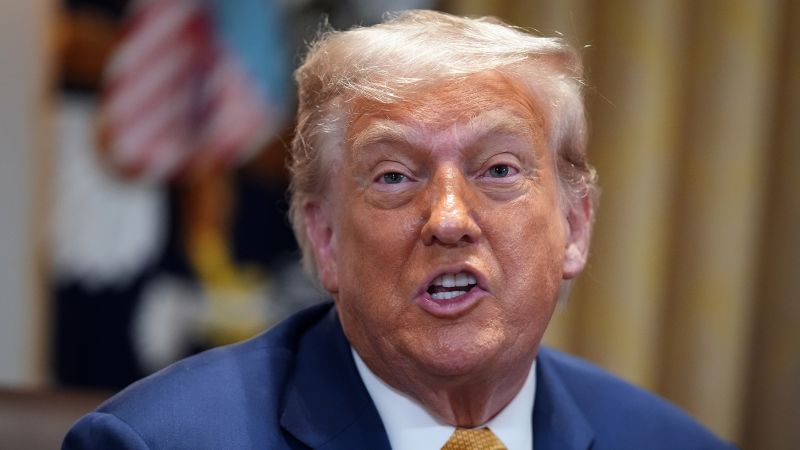Trump Delays Trade Deal Deadline Amid Limited Progress

President Donald Trump has made significant adjustments to his trade negotiations timeline, conceding that the anticipated completion of 200 trade deals will not be realized as quickly as he initially projected. At the end of April, he claimed to have finalized agreements with numerous countries, but as of now, only three deals have been confirmed—with China, the United Kingdom, and Vietnam.
Originally, Trump set July 9, 2023, as the deadline for countries to finalize trade agreements or face increased “reciprocal” tariffs. Acknowledging the challenges of this ambitious target, he has since pushed the deadline to August 1, 2023, aiming to allow more time for negotiations, particularly with the European Union. This shift underscores the complexities of international trade talks and the nuances of bilateral relationships.
Negotiations with the European Union
Negotiators from both the EU and the US are reportedly close to establishing a framework agreement that could introduce 10% tariffs and set the groundwork for extensive future discussions. This progress is a key reason for extending the deadline, as it is seen as critical in avoiding a trade standoff. Scott Bessent, Treasury Secretary, has emphasized that ongoing negotiations with the EU and other key partners are reaching their final stages.
In a press briefing, Olof Gill, a trade spokesperson for the European Commission, confirmed that talks are actively progressing. Discussions involve US Commerce Secretary Howard Lutnick and US Trade Representative Jaimeson Greer, with an announcement of a deal expected imminently. This marks a notable shift in Trump’s previously hostile stance toward the EU, reflecting a willingness to engage more constructively as the deadline approaches.
Despite the optimistic outlook, Trump must ultimately approve any agreement reached by negotiators. The ongoing discussions will likely focus on contentious issues such as the 25% tariffs on automobiles and 50% tariffs on steel, with efforts to potentially reduce these figures being discussed.
Challenges in Other Trade Relationships
While the EU negotiations show promise, other potential agreements face significant hurdles. India, considered a likely candidate for a deal, has recently adopted a tougher negotiating stance, complicating discussions. Moreover, Trump’s threats of a 10% tariff on countries in the BRICS group have created uncertainty regarding future negotiations.
Trump expressed frustration during a cabinet meeting, stating that while his approach has successfully brought partners to the negotiating table, the offers made by these countries remain unsatisfactory. He criticized proposals that would grant the US access without imposing tariffs, reiterating a need for the US to benefit financially from trade agreements.
Letters outlining new tariffs have been sent to countries including Japan and South Korea, indicating a continued hardline approach. Negotiations with Japan appear to be stalling, with Prime Minister Shigeru Ishiba commenting on the challenges faced in reaching a satisfactory agreement.
Despite these setbacks, some Southeast Asian nations, including Indonesia, Cambodia, and Thailand, have made substantial offers in recent weeks, positioning themselves as potential candidates for near-term agreements. Brazil has also intensified its efforts, engaging in bilateral talks aimed at reducing tariffs on select US products.
As negotiations continue across various fronts, the overarching challenge remains the lack of clarity regarding the final terms that the US administration seeks. The presence of existing or planned sectoral tariffs presents a significant barrier to reaching comprehensive agreements.
The evolving landscape of international trade negotiations under the Trump administration highlights the complexities of balancing national interests with global economic dynamics. With the new deadline set for August 1, 2023, the coming weeks will be critical in determining the success or failure of these discussions.






